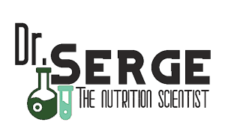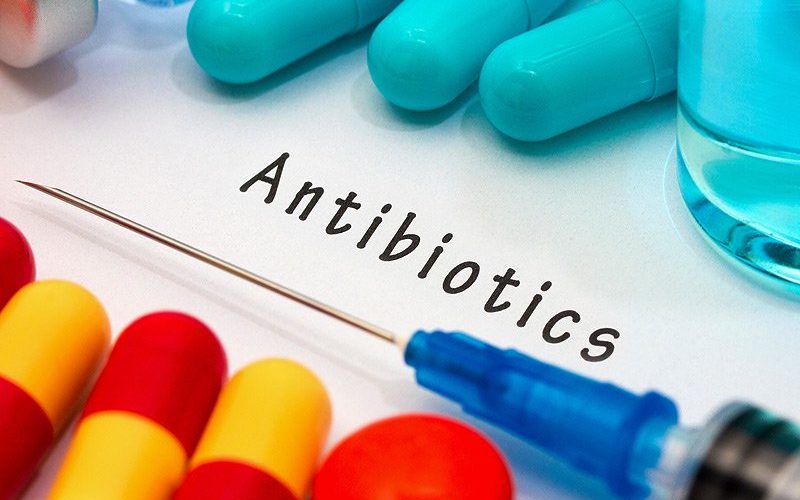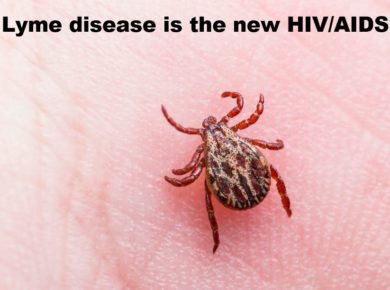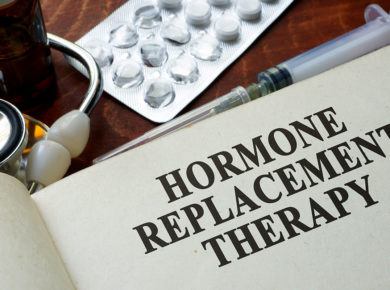New research shows that antibiotics given to babies may change their gut microbes for years, if not life!
Antibiotics are one of the worst medications you can use.
It is called anti-biotics because they kill the microbiome of the gut with major, long-term side effects.
Babies born by cesarean section, as well as those given antibiotics early in life, have a different balance than other babies. These differences could put them at higher risk for various health problems in childhood, including asthma, type 1 diabetes, and perhaps even autism.
Dr. Ramnik Xavier is a pioneer in this work.
You can read more about his work at his page:
https://advances.massgeneral.org/contributors/contributor.aspx?id=1328
Below are a few articles he published on the effect of antibiotics on the microbiome:
“The Dynamics of the Human Infant Gut Microbiome in Development and in Progression toward Type 1 Diabetes” published in Cell Host and Microbe in 2015.
You can find the article at this link:
https://www.cell.com/cell-host-microbe/fulltext/S1931-3128%2814%2900063-8
And:
“Natural history of the infant gut microbiome and impact of antibiotic treatment on bacterial strain diversity and stability” published in Science Translational Medicine in 2016.
And this is the link you can read the research:
https://stm.sciencemag.org/content/8/343/343ra81
By the time children are 3 years old, their intestinal microbes are largely stable, said Dr. Ramnik Xavier. So what happens early in life can have long-term implications for health.
“The take-home message is that not allowing the immune system to develop to its maximum potential … is not a good thing,” said Xavier, chief of the gastrointestinal unit at Massachusetts General Hospital.
“You need the microbiome to develop normally and educate the immune system in the gut to respond to these microbes and also prevent other harmful bugs from getting in.”
His study followed 39 Finnish children from birth to age three.
Another study 43 youngsters in New York City.
The title is:
“Antibiotics, birth mode, and diet shape microbiome maturation during early life” published in Science Translational Medicine in 2016.
This is the link you can find the study:
https://stm.sciencemag.org/content/8/343/343ra82
Families in both places delivered the contents of dirty diapers to clinics, which stored them in freezers to keep the fecal microbes intact until scientists could extract DNA and identify the thousands of bacterial species hiding inside.
Both studies showed that kids prescribed antibiotics in their first few years had a different balance of microbes than those who did not need the medications.
They also found different cohorts in children born by C-section compared to vaginal delivery.
Earlier studies had suggested the same results, but the new research analyzed the microbiome more deeply and followed the same children over a period of time, said Dr. Xavier.
The microbiomes of children born by C-section look less mature than those delivered vaginally, said Dr. Martin Blaser, a professor at NYU who headed the second study.
Even if their microbiomes do eventually catch up, “there’s still a period of time when the microbiome is not maturing at the same rate as the baby.”
And women who have C-sections are usually given antibiotics during the procedure. So maybe it’s the antibiotics that alter the microbiome, not the C-section, said Dr. Tim Buie, a pediatric gastroenterologist at Massachusetts General Hospital.
This is a good question that needs to be addressed. There is no doubt that the antibiotics given during the C-section destroy the flora of the mom which could impact the gut of the baby as well.
Regardless, Blaser urged women to be cautious when choosing a C-section for convenience rather than for medical reasons.
The C-section rate in the United States is 32 percent; the rate in Manhattan, where his study was done, is even higher.
In other words, one baby out of 3 is born by C-section. This is ridiculous and does affect the health of the baby.
Bacterial diversity is so complex that the difference among strains can be as vast as the gap between Great Danes and dachshunds, said Dr. David Relman, a professor at Stanford Medical School, who was not involved in either study, though he does similar research.
Xavier said he was shocked by the number of antibiotics his test subjects have received. Of the 39 children, half received no antibiotics, while the others received nine to 15 doses in their first three years. “I guess it’s not uncommon when you prescribe an antibiotic for a viral infection, and kids don’t get better for the physician to write another prescription,” Dr. Xavier said.
Dr. Xavier admitted that doctors are quick to prescribe antibiotics even for viral infections! No wonder why we are in this mess!
Those who got the antibiotics showed signs of having antibiotic-resistant bacteria in their guts, potentially setting them up for medications that may not be effective later.
Blaser said he hopes to get funding so he can follow the children in his study as they proceed through elementary school and beyond.
Another study just came out and look at the intake of antibiotics in children and risk of developing allergies.
“Association Between Use of Multiple Classes of Antibiotic in Infancy and Allergic Disease in Childhood” published in JAMA Pediatrics in 2019.
You can find the article at this link:
This study found that all commonly prescribed antibiotics during infancy are associated with subsequent diagnosis of allergic disease. Administration of more than 1 class of antibiotics was associated with increased risk, most notably for asthma and allergic rhinitis (or hay fever). This association persisted even after adjusting for the total days of antibiotics supplied.
It found that infants who were given antibiotics, penicillin, cephalosporin, sulfonamide or macrolide, had a greater chance of developing allergies such as food allergies, asthma or dermatitis.
One of the authors, Dr. Cade Nylynd said:
“I was surprised to see an association of all classes of antibiotics with the later development of allergic disease.”
“We have demonstrated that not only are antibiotics associated with an increased risk of allergic disease but that there is an increased risk associated with the prescription of multiple classes of antibiotics,” he said. “Limiting unnecessary antibiotic prescriptions for viral infections like the common cold may be a step towards preventing the development of allergic disease.”
The research involved analyzing the medical records of 798,426 children who were beneficiaries in the Department of Defense TRICARE health care program and born between 2001 and 2013.
The researchers examined which children had been given prescriptions for penicillin, penicillin with B-lactamase inhibitor, cephalosporin, sulfonamide, or macrolide within the first six months of life.
The researchers also examined which children were later diagnosed with an allergy, such as food allergy, anaphylaxis, asthma, atopic dermatitis, allergic rhinitis, allergic conjunctivitis or contact dermatitis.
The researchers found that the antibiotics they assessed were associated with increased risks for a subsequent diagnosis of allergic disease. The risk was lowest for sulfonamides and highest for penicillin.
“Being prescribed an antibiotic increased the risk of later development of allergic disease anywhere from 8% for food allergy to 47% for the development of asthma,” Nylund said.
One reason why there might be an association is because, “our microbiomes, specifically in our gut, play a large role in our immune systems. Antibiotics are known to not only kill the bacteria that are causing an infection but also ‘good’ bacteria our immune system needs to protect us from developing allergic or autoimmune diseases.”
The research is “helpful” in the sense that “it further affirms what we know about antibiotic use being associated with microbiome changes, which may lead to various immune diseases such as allergic conditions.”
Buie said the next step is to figure out how to rebalance a child’s bacterial community, once it’s disturbed.
Indeed, there is some evidence that it takes years for the gut to get back to normal. Some doctors believe that the gut will never recover from a round of antibiotics.
From experience, I agree with the later. Antibiotics treatments lead to major gut issues like yeast and parasites overgrowth. If you have ever dealt with yeast issues, it is a hard one to get rid of. It can take years. The same scenario applies to parasite issues in the gut.
As you can see, giving antibiotics to children or anyone, as a matter of fact, is not a good idea at all.
It increases the risks of allergies, diabetes, autism, cancer, and autoimmune issues.
The primary thing that you need to do to optimize your immune system is to nourish properly your body, meaning no junk foods, no sugar, low carb, plenty of fresh veggies and fruits.
Add some fermented foods to your diet like kimchi, kombucha, kefir or sauerkraut.
Then, some products like oregano, berberine, Pau d’Arco, garlic, vitamin D, vitamin C, etc. can be used.
Chiropractic care is a must for every kid. I have met hundreds of kids who once they started chiropractic, they stopped having ear infections, colds, their behaviors improved, they slept better, etc.
My daughter has never been vaccinated and never been sick. When she feels a bit “off,” we give her some herbs and she is good to go in a matter of a few hours.
Nature provides everything we need to fight pathogens. It is ludicrous to believe that medicine can be smarter than Mother Nature.
Ezekiel 47:12
“And on the banks, on both sides of the river, there will grow all kinds of trees for food. Their leaves will not wither, nor their fruit fail, but they will bear fresh fruit every month, because the water for them flows from the sanctuary. Their fruit will be for food, and their leaves for healing.”
God bless y’all 😊
Dr. Serge






